Our Department
The Sociology, Criminology and Anthropology Department provides a challenging, engaging, and productive learning environment that prepares our students for the 21st century workplace. To ensure we do this, the faculty engage in a variety of activities that enhance our classrooms. We participate in teaching and learning workshops, invite guests from the professional workforce to present to our students, remain current in our fields through research and publishing, and actively serve the campus, the River Falls area, and broader academic community.
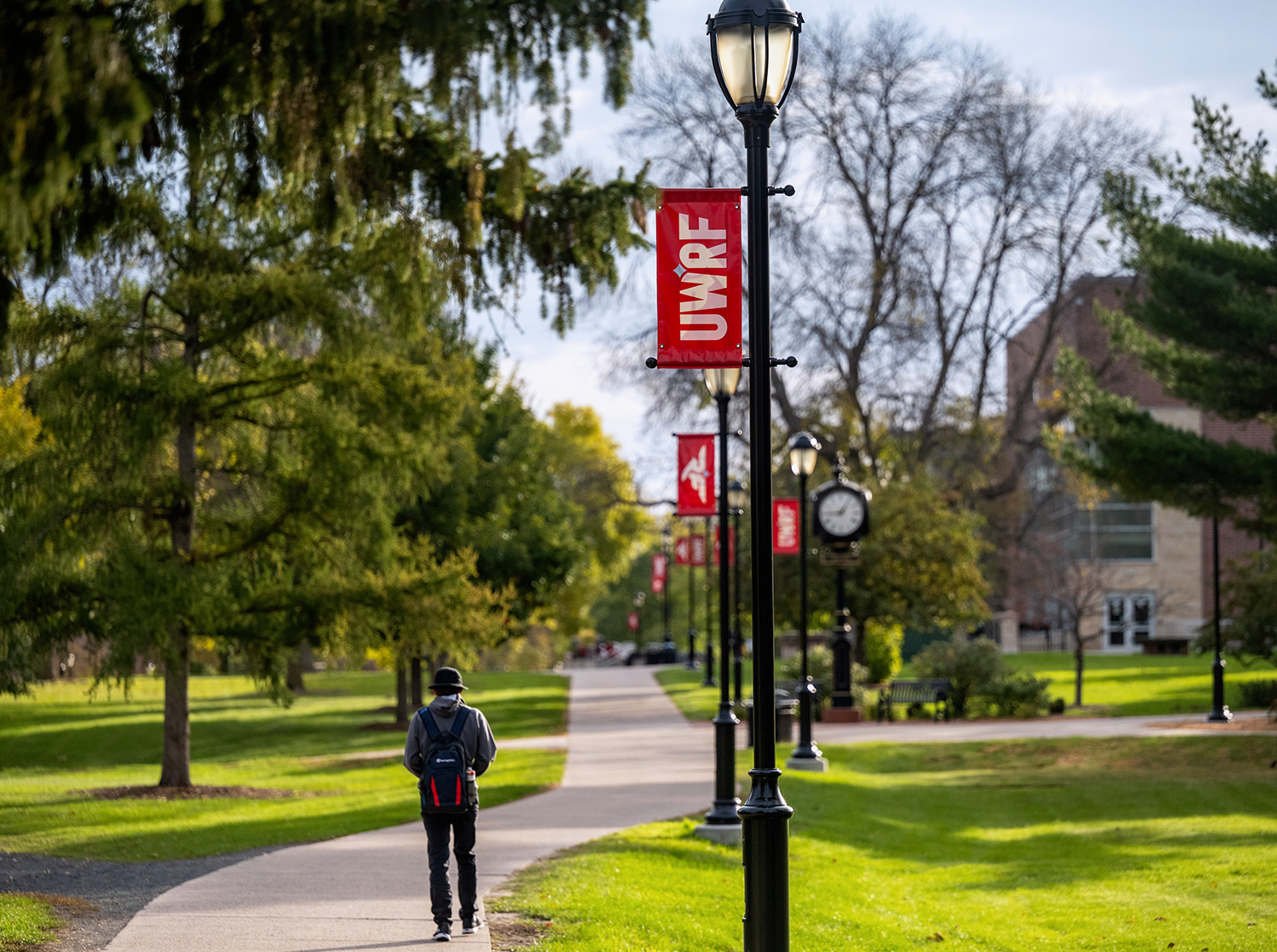
Faculty and Staff
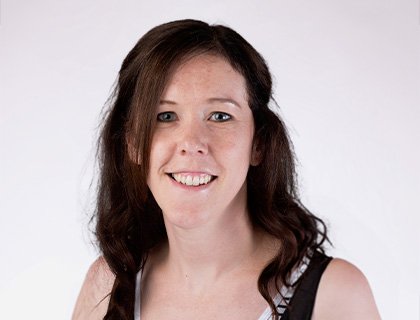
Paige Miller
Department Chair; Professor, Sociology
Office: 322 Kleinpell Fine Arts
Phone: 715-425-4435
Email: paige.miller@uwrf.edu
Start Year: 2009
Professional Information
Education:
- B.A., Black Hills State University
- M.A., Ph.D., Louisiana State University
Research Interests:
- National Science Foundation Research in India
- National Science Foundation Research in Ghana
Professional Activities:
- Wisconsin in Scotland, 2016
- Wisconsin Sociological Association, Secretary
- Midwest Sociological Society, Wisconsin State Director
Areas of Interest:
- Networked Knowledge and Preparedness for Ebola: A Comparative Study of the US, Ghana, Guinea and Mali
- Mobile Technologies in Urban Slums in Kerala, India and Accra, Ghana
- The Social Life of COVID19, a multi-national COVID-19 study
- Research on Information and Communication Technologies in the Educational and Research Communities of Kenya, Ghana and Kerala
Professional Recognition:
- UWRF Paul B and Robert Dykstra Faculty Excellence Award, 2017
- UWRF Excellence in Advising Award, 2014
- UWRF Excellence in Research, Scholarly and Creativity Award, 2012

Tricia Davis
Professor, Sociology
Office: 330 Kleinpell Fine Arts
Phone: 715-425-4125
Email: tricia.m.davis@uwrf.edu
Professional Information
Education:
- B.A., Winona State University
- M.A., Minnesota State University-Mankato
- Ph.D., North Carolina State University
Areas of Interest:
- Human Sexuality
- Inequality
- Research Methods
- Sociology through Film
- Statistics
Professional Recognition:
- UWRF Excellence in Advising Award, 2005
- UW-River Falls Davis Graduates from HERS Denver Summer Institute
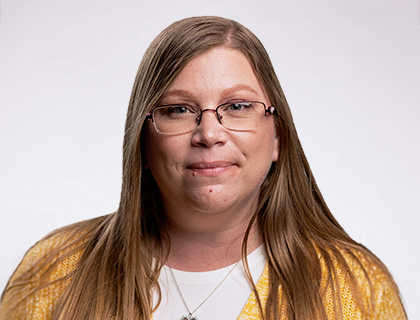
Melissa Hayslip
Assistant Professor, Criminology; SCA Club Adviser
Office: 332 Kleinpell Fine Arts
Phone: 715-425-4362
Email: melissa.hayslip@uwrf.edu
Start Year: 2022
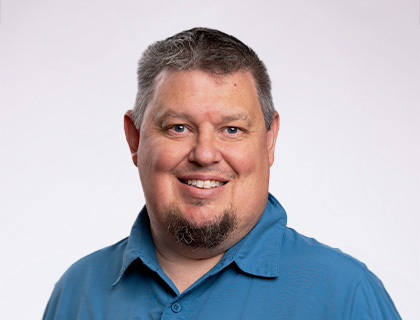
Rich Wallace
Professor, Sociology and Criminology; Director of Belize Study Adventure
Office: 328 Kleinpell Fine Arts
Phone: 715-425-4713
Email: rich.wallace@uwrf.edu
Start Year: 1997
Professional Information
Education:
- B.A., Millikin University
- M.S., Ph.D., Virginia Polytechnic Institute and State University
Professional Activities:
- Wisconsin in Scotland, 2007, 2009
- International Traveling Classroom, 2013, 2014, 2019, 2022
- Semester Abroad: Europe, 2016, 2017, 2022
- Study Tour of Belize, ongoing
Areas of Interest:
- Criminological Theory
- Sociology of Sport
- White Collar Crime
- Juvenile Delinquency
- Deviant Behavior
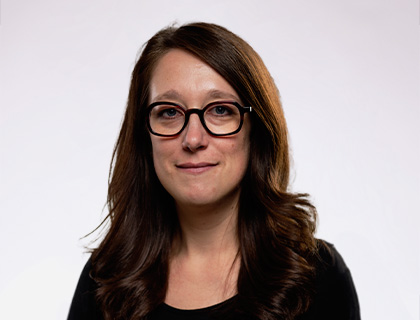
Desiree Wiesen-Martin
Associate Professor, Sociology and Criminology; Criminology Internships Adviser
Office: 324 Kleinpell Fine Arts
Phone: 715-425-4738
Email: desiree.wiesenmartin@uwrf.edu
Start Year: 2014
Professional Information
Education:
- B.S., M.A., Minnesota State University, Mankato
- Ph.D., University of New Hampshire
Research Interests:
- Victimology
- Criminological Theory
- Social Movements
- Women and the Criminal Justice System
Professional Activities:
- Study Abroad Belize, 2017, 2018
- Women’s and Gender Studies Committee
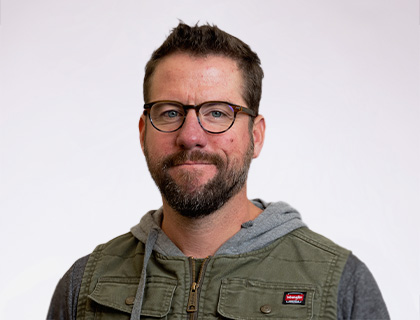
Erik Withers
Assistant Professor, Sociology; Sociology Internships Adviser; Director of Women's, Gender and Sexualities Studies Program
Office: 326 Kleinpell Fine Arts
Phone: 715-425-4729
Email: erik.withers@uwrf.edu
Start Year: 2019
Professional Information
Education:
- A.A. Liberal Arts, Valencia Community College
- B.S. Criminal Justice, University of Central Florida
- M.A. Sociology, DePaul University
- Ph.D. Sociology, University of South Florida
Courses Taught:
- SOCI 100 Introduction to Sociology
- WGSS 200 Introduction to Women's, Gender and Sexualities Studies
- SOCI 200 Sociology of Diversity
- UWXSC 222 Race and Ethnicity
- SOCI 300 Research Methods
- CRIM 321 Race and Crime
- SOCI 322 Race and Ethnicity
- SOCI 328 Perspectives on Race Relations
- SOCI 411 Seminar on Culture and Community
- SOCI 421 Seminar on Diversity and Inequality
Research Interests:
Racial and Ethnic Inequalities, Consumer Culture, Gender and Sexualities, Urban Sociology, Identity, Sociology of the Family, Cultural Sociology, Qualitative Research Methods.
Professional Activities:
- April 2022, Midwest Sociological Society Annual Meeting, Chicago, IL. “The Man Had a Dream”: Using Narratives to Uncover How Students Learn About Systemic Racism.
- October 2021, Wisconsin Sociological Association Annual Conference, virtual. “Whiteness as “Purity”: A Critical Analysis of Korean Soju Advertisements on Instagram.
- March 2021, UWRF Women’s, Gender, & Sexualities Studies Women’s History Month Flash Presentations, virtual. “The Gendered experiences of Cultural Intermediaries in the Craft Beer, Wine, and Spirits Industry.”
- November 2020, Wisconsin Sociological Association Annual Conference, virtual. “You Just Need to Be One of the Boys and Accept It” The Gendered Experiences of Cultural Intermediaries in the Craft Beer, Wine, and Spirits Industry.
- April 2019, Southern Sociological Society Annual Conference, Atlanta, GA. “Why Would You Have a Coconut Rum with a Palm Tree on it Made in Canada? Cultural Intermediaries, Ethnicity, and Value Construction in the Craft Beverage Industry.”
Publications:
- Special Issues:
- Withers, Erik T. and Rich Wallace. 2021. New Approaches to Using Visual Media in the Social Science Classroom. Sociological Imagination.
- Withers, Erik T. and Manuel Ramirez. 2020. Culture and Inequalities. Humanity and Society.
- Journal Articles:
- Withers, Erik T. and Rich A. Wallace. 2021. “Using Media to Turn on and Tune in the Sociological Imagination: The Z to A Approach.” Sociological Imagination. 57(1): 4-8.
- Brunsma, David L., Nathaniel G. Chapman, Joong Won Kim, J. Slade Lellock, Jennifer Padilla Wyse, Erik T. Withers, and Megan Underhill. 2020. “The Culture of White Space: On the Racialized Production of Meaning.” American Behavioral Scientist. 64(14): 2001-2015.
- Withers, Erik T. and Manuel Ramirez. 2020. “Keep Culture, Lose the Reductionism: Exploring Contemporary Cultural Spaces as Sites of Power Maintenance and Resistance” Humanity and Society. 44(4): 367-374.
- Withers, Erik T. 2017. “Whiteness and Culture.” Sociology Compass. 11(4): 1-11.
- Book Chapters:
- Withers, Erik T. 2017. “Brewing Boundaries of White/Middle-Class/Maleness: Reflections From Within the Craft Beer Industry.” Pp 236-260 in: Untapped: Exploring the Cultural Dimensions of the Craft Beer Revolution. Edited by: Nathaniel G. Chapman, J. Slade Lellock, and Cameron Lippard. Morgantown, WV: West Virginia University Press.
- Withers, Erik T. 2017. “The Impact and Implications of Craft Beer Research: An Interdisciplinary Literature Review.” Pp 11-24 in: Craft Beverages and Tourism, Volume One: The Rise of Breweries and Distilleries in the United States. Edited by: Carol Kline, Susan L. Slocum and Christina T. Cavaliere. London, UK: Palgrave MacMillan.
- Book Reviews:
- Withers, Erik T. 2021. Review of Vegas Brews: Craft Beer and The Birth of a Local Scene by Michael Ian Borer. Journal of Consumer Culture.
- Withers, Erik T. 2020. Review of I Got Something to Say: Gender, Race, and Social Consciousness in Rap Music by Matthew Oware. Sociological Inquiry.
- Withers, Erik T. 2019. “Old Jobs, New Vibes: How Distilling Bartending, and Butchering Became Cool.” Review of Masters of Craft: Old Jobs in the New Urban Economy by Richard E. Ocejo. Symbolic Interaction.
- Scholarly Essays:
- Withers, Erik T. March 2019. Scholars’ Conversations: Joshua Sbicca, Food Justice Now! ASA Section for Consumers and Consumption Website.
- Withers, Erik T. November 2018. Cultural Intermediaries, Emotion, and the Craft Beverage Industry. Consume This! ASA Section on Consumers and Consumption Blog.
Lecturers
Faculty Emeriti
- Brian Copp (retired 2011)
- Tim Nissen (retired 2013)
- Nancy Parlin
- Ed Robins (retired 2015)
Other Past Faculty
- Robert Bailey
- Jean Faley
- Clifford Mottaz
- Robert Pionke
Student Staff
- Chesney Zaverousky (Lead worker)
- Emma Brost
- Will Ehlert
Mission, Vision and Values
The mission of sociology program is to:
- Contribute to a complete education by improving the students’ appreciation of the role of society in forming the individual and the role of the individual in the global society. This involves understanding and unraveling the complexities of social life; learning methods appropriate for analyzing social reality; and being able to go beyond common sense to describe and explain social behaviors in global environments and the connections among them.
- Educate the students for world citizenship. This requires an enlarged (broad) knowledge of culture and society, an appreciation of the meaning of human diversity, and an appreciation for the interrelation of cultures and the globalization of culture. An improved tolerance of diversity and willingness to contribute to individual and community well-being are outputs of this process.
- Provide education for a productive life. This involves the development of specific skills necessary for the pursuit of careers and professional opportunities, including graduate school. They include communication skills; teamwork and team building skills; critical thinking skills; problem solving skills; data gathering and analyzing skills; computer skills; as well as the following qualities: flexibility, adaptability and creativity; global awareness; and ethical behavior.
- Educate for a love of learning by providing contact with faculty role models who will demonstrate that learning is a life-long process which sustains interest in community and society and is consistently rewarding.
The mission of the criminology program is to:
The mission of the criminology program is to prepare students for productive and exciting careers in criminology. Students in this program learn to outline the change in thinking about crime and delinquency, identify major shifts in criminal justice knowledge, and relate that knowledge to social control strategies. They learn to describe the typical components of the criminal justice process in the United States and explain the interactions among them. Students are guided as they evaluate theories of deviance and apply them to discussions about trends and risk factors for crime and delinquency. They assess the effectiveness of intervention strategies (past and present), begin to generate innovative solutions to criminal justice problems, and learn how to impact the future of crime prevention and criminal apprehension. Students are also able to apply their knowledge through a variety of internship possibilities including the law enforcement certification internship.
The mission of the anthropology program is to:
The anthropology minor is structured to provide a solid understanding of the relationship between culture and behavior. Students will learn about many cultural traditions: some ancient, some modern. Humans are studied as both social and biological actors. Cultural traditions are shown to define the conditions of life: how people make children, nourish them, instruct them, protect them from harm, and reward them. Culture is renewed with each generation and the state of health of a culture and its people are interconnected.

